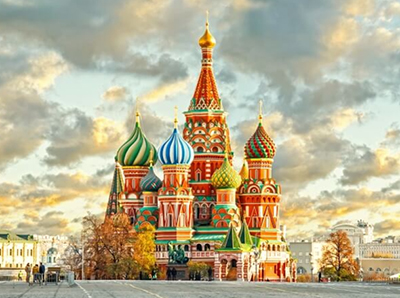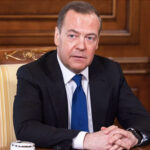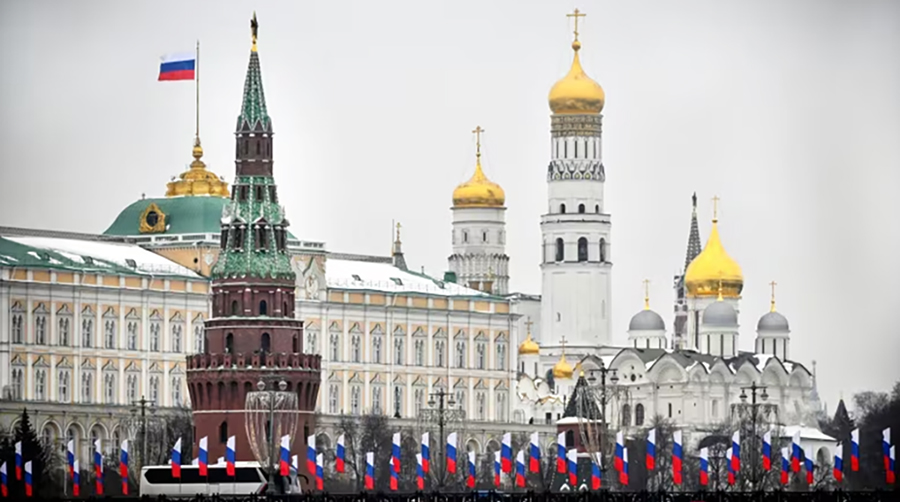 Could Donald Trump be for the USA what Michael Gorbachov was for Russia? That’s a popular view in Russia currently. While Trump’s election was greeted warmly in Moscow, digging a little deeper we find that all is not as benign as it seems.
Could Donald Trump be for the USA what Michael Gorbachov was for Russia? That’s a popular view in Russia currently. While Trump’s election was greeted warmly in Moscow, digging a little deeper we find that all is not as benign as it seems.
It turns out that many in the Kremlin feel that a Trump presidency might bring about the collapse of America. That the USA is in the final stage of its history is not a new idea in Russia.
Nikolai Patrushev, one of Mr. Putin’s key advisers, said in an interview with Rossiyskaya Gazeta, that he expected the United States would split into North and South, with the South moving “toward Mexico, whose lands were seized by Americans in 1848,” he said.
That might sound laughable to us in the USA. But you have to admit that, viewed from afar, the fractures in American society can easily be seen to be beyond the point of no return. And many Russian advisers and officials see the recent American film “Civil War,” which depicts California and Texas seceding, with bloodshed erupting across the nation, as a reflection of how Americans see their near future.
 The movie was released in Russia under the title “The Fall of the Empire”. Dmitri Medvedev, former president of Russia, remarked on his Telegram channel that he took it as proof that civil war in the United States is inevitable. “Hollywood doesn’t make films about it for no reason”, he said.
The movie was released in Russia under the title “The Fall of the Empire”. Dmitri Medvedev, former president of Russia, remarked on his Telegram channel that he took it as proof that civil war in the United States is inevitable. “Hollywood doesn’t make films about it for no reason”, he said.
Let’s not forget how close to home this can hit for Russians and their leadership. In the lifetime of many of us, Russia was the head of a vast empire, the USSR. But it collapsed in the 1990’s and that’s seen by much of the leadership there as the greatest failure ever to hit their motherland. Putin is fully known to see it that way.
And who immediately preceded the collapse of the USSR? Michael Gorbachov. I lived for a year in Moscow in the mid 90’s and it struck me as strange how many Russians viewed Gorbachov back then. It was a common belief there that he may have been a CIA plant. For one, friends said, the way Gorbachov spoke Russian was suspicious; it didn’t sound right, they said. And the end result of his rule is seen by so many as a vast failure and catastrophe for the nation.
But he rose to power through the ranks of the Soviet government, having what was a good track record and he intended to shake things up. Glasnost and Perestoika it was called. However, the end result was far from what those in power were intending. The shake ups and radical reforms turned into a death knell and collapse of the Soviet Union and the end of the Russian empire. In the corridors of power in the Kremlin now, Trump is seen as a likely Gorbachov for the declining empire of America.
As the good Lord said, “A nation divided against itself cannot stand” (Mark 3:24). And nothing pleases a predator more than to find potential meals fighting amongst themselves. Reflecting on these current views of America, it’s hard not to feel the Russians have a point.
To officials in the Kremlin, Gorbachev was a self-absorbed narcissist who loved to talk — a man without a plan, a strategy or any clear understanding of his goals, a politician who undermined core institutions that supported the state and left only chaos in his wake. And they see the current president-elect here as playing a similar role.
Well, it’s an interesting viewpoint and it all remains to be seen. But it just helps sometimes to see ourselves as others see us. Particularly in this time of hyper-partisanship, when we are forced at every turn to choose between the hard right and the extreme left. Is the American dream and empire about to fall? We’ve heard that before and still, here we are.
I’m glad that my identity is rooted in Christian discipleship which should make it possible to rise above the chaos that is so enveloping here currently. I’m a providentialist, I believe I can and should accept what has transpired with the recent election while continuing to keep my foundation on the rock of Christ and God’s truth, rather than the roaring confusion that is so strong now.
[I should mention that some of the information and views expressed in this article come from an editorial in the New York Times, written by Mikhail Zygar, a Russian journalist.]
